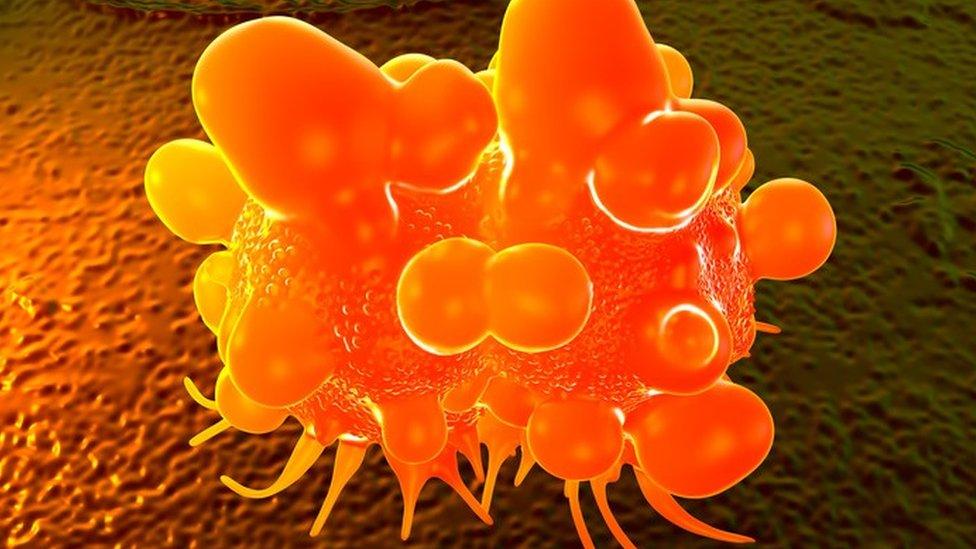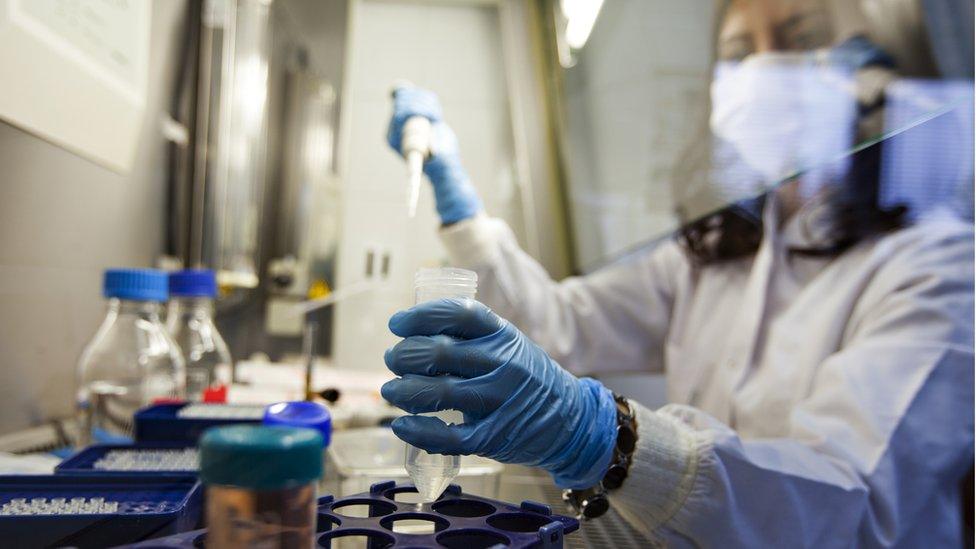Patients in Wales to be tested for bowel cancer gene
- Published

It is hoped the tests will identify more people at risk of developing bowel cancer
All people in Wales diagnosed with bowel cancer will be tested for a linked genetic condition.
Sufferers of Lynch syndrome have an up to 80% risk of developing bowel cancer as well as other types of cancer.
Currently, only 5% of those with the syndrome in the UK are known, meaning more than 166,000 people could be at high risk of cancer without knowing.
From June, Wales will become the first UK nation to test all people diagnosed with bowel cancer for Lynch syndrome.
This will mean relatives, who have a 50% chance of also having it, can be identified.
In Wales, bowel cancer is the second biggest cancer killer and fourth most common cancer with 2,200 people diagnosed each year.
The move was described as "a critical first step forward in saving lives" by Bowel Cancer UK head of Wales Lowri Griffiths.
She hopes it will put pressure on England, Scotland and Northern Ireland to follow.

'Knowledge is power'

Tracy Smith has set up a charity called Lynch Syndrome UK with others who were frustrated about the lack of information available
Following her third child at age 33, Tracy Smith, from Caerphilly, said GPs dismissed a tumour as a pile.
However, she was convinced it was something more serious and said she "opened up a can of worms" in the family by asking for more tests.
"I was one of three (sisters) and we all had the (Lynch syndrome) gene," she said.
"Thankfully, I came through cancer, but my sister was not so lucky, and she was 23 when she passed away."
Further investigations found Ms Smith's father was a carrier, while her children have also been tested.
She is now clear of cancer after her diagnosis in 2005.
"Knowledge is power and people will know what to look out for," she said.
"People can sometimes dismiss the signs of bowel cancer but if you know you have this gene mutation and are at higher risk, you will be more wary and alert."

Helen Roberts, of the All Wales Medical Genetic Service, said: "The service will identify patients whose colorectal cancer is a result of having inherited a predisposition to cancer, in other words identifying patients with Lynch syndrome.
"Individuals and families with this hereditary condition will then be able to benefit from early surveillance and intervention, having a huge impact on many lives."
- Published1 April 2019

- Published5 September 2018

- Published1 August 2018

- Published27 March 2018
